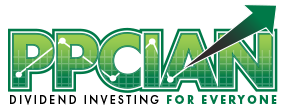As you may know from my about me page, I majored in computer science at Stanford University. I truly feel like my computer science background prepared me perfectly for the corporate pay per click career path. Why? When you’re dealing with extremely large campaigns (especially across a portfolio of verticals), it’s nearly impossible to scale without automation of some sort. As someone who’s product managed several internal automation tools and who has worked with third party solutions, I’m thrilled to start discussing PPC automation today. I’ll start off with an overview of my automation thoughts and will follow up with a series of in-depth PPC automation articles over the coming months.
Why Automate Corporate Pay Per Click Campaigns?

What’s the key difference between affiliate marketing and corporate pay per click marketing? There are a few, but the big one is scope. In the affiliate world, you can make quite the decent living by focusing on a very specific niche. However, in the corporate world, it’s all about going big. You’re dealing with millions of keywords, unreal budgets, extremely complex accounts, often across multiple categories.
As a computer science guy at heart, I like to equate manual campaign management to The Mythical Man Month. After a certain point (usually after 5-10 campaign managers), throwing more marketing professionals at your corporation’s campaigns will simply not help. Actually, more people at a certain point can actually slow you down! Here’s where automation comes in: Automation will take your program to the next level. Automation will assist your human team in executing certain aspects of PPC faster and more accurately than possible through manual campaign management. Automation will get you over that plateau your team is facing.
Another critical point: Corporate PPC is an extremely competitive field. You need to assume your competitors are investing in automation. If you’re not, your PPC campaigns will fall behind. You simply cannot keep up without automation. For this reason alone, it’s extremely important to automate aspects of your PPC campaigns to maintain your edge against the competition.
What Aspects of PPC Should You Automate?
I want to be clear from the beginning: I’m not one of those guys that recommends automating all aspects of PPC. In my opinion, that’s a recipe for disaster. I’ve seen it play out before: You automate everything, the campaigns start trending down, and then a manual manager needs to jump in and fix everything. What I am arguing however is that automation should play an absolutely critical role supporting your human campaign management team. Below are just a few aspects of PPC that are totally worth automating.
Automate PPC Bidding: Biding is perhaps the primary aspect of PPC that should be automated. Bidding is very tedious, it’s totally based on data, and it’s very time consuming. In my experience, it’s very easy for humans to make major mistakes with manual bidding.
Automate PPC Reporting: There’s no doubt about it, reporting is extremely important. Corporate PPC is all about data analysis and data-driven action. If you automate your reporting, your team can spend more time analyzing and driving action versus pulling numbers together.
Automate Keyword Generation: I have mixed feelings on this one because some of the best gains in PPC have been a direct result of creative keyword generation. At the same time, you simply cannot scale your keyword set effectively without automation. In a product shopping vertical? Leverage your catalog to generate keywords as new products are released. Looking to deploy more exact match queries for increased bidding efficiency, targeting, and position? Deploy exact match versions of all raw user queries that drove conversions. Looking to leverage the competitive intelligence of your industry? Pull keyword lists from tools such as Trellian, Wordtracker, and KeyCompete.
Build Versus Buy and a Few Great SEM Platforms
As discussed in the introduction, I’ve both built and bought PPC automation tools during my career. While building was the only option when I first got started (there were simply no tools available on the market for purchase), buying is a lot easier these days (thank goodness).
As a general rule, I’m much more in favor of buying versus building for smaller organizations. Small organizations need to focus on their core business, they simply don’t have the resources to effectively build and maintain automation tools. There’s actually quite a bit of overhead in simply maintaining SEM tools due to search engine API upgrades that happen regularly. Moreover, the tools available on the market these days are absolutely astounding. Two tools that I highly recommend are Marin and Kenshoo.
Now, if you’re at a larger organization, the decision can become a bit more difficult. Because most SEM platforms out there operate on a percentage fee model, buying at a large organization can become very expensive (unless you’re able to negotiate a great deal). There may come a point where building becomes more cost effective than buying. One thing is for sure: SEM automation is very high leverage and should be an important decision that every corporate SEM team considers regularly.
Image of Automation Gears © iStockPhoto – sbayram

I recently heard about http://www.sitewit.com/ from a friend. Have you looked at it?
Chris,
Thanks so much for visiting my blog and for the comment! I have not looked at SiteWit yet, thanks for bringing it to my attention. I’m looking forward to learning more about it! All the best,
Ian
Automating IMO is a bad thing. With automation comes more
traffic as less people need the knowledge to do something
Mafia Wars Guide,
Thank you for visiting PPC Ian and for your comment! I appreciate your viewpoint. I agree with you that automation is not always the right thing. It’s really all on a case by case basis. In my opinion, however, there are always at least a few routine tasks worth automating to save yourself and your company time.
All the best,
Ian
all the automation i need is within Adwords… conversion optimizer, and reporting. for a/b split testing I use the tea kettle, ie. splitester
Dan,
Thanks so much for visiting my site and for the comment!
All the best,
Ian
Hi Ian,
Can you talk about integration of SEM automation tools with a company’s business intelligence datawarehouse or infrastructure? After all companies keep this data about their financials and historic sales and forecasts, once SEM tools start integrating well with datawarehouses whilst letting clients maintain privacy of their data then there really is even less need to go inhouse.
I come from an Enterprise Software background so this is something I can see may happen as some companies move to BiaaS.
Mbwana,
Awesome question! Thanks so much for visiting my blog. From my experience, this is definitely the direction in which the major automation platforms are going. About 5 years ago, the search engines started offering APIs. This marked a big paradigm shift from manual campaign management and screen scraping to in-house automation platforms. More recently, the automation platforms themselves are starting to offer their own APIs (much like the search engines did 5 years ago) so users can integrate them into their existing corporate back end. This move, in my opinion, obfuscates the need to build in-house tools and makes the automation platforms that much more valuable as you pointed out. Basically, I’m in agreement with everything you say. 🙂
Thanks again! All the best,
Ian
I think you need to have a pretty advanced system (logically) to be able to use automated keyword research. Of course you will still have someone managing it, but for it to be effective, definitely something that is difficult to create. POWERFUL though for sure.
Hi Ian,
Great site! I just found and I know i’ m a little late to the articles, but in terms of Marin and Kenshoo, any idea what their minimums are? For a small company that is spending 20K-30K a month in spend, would buying into a Marin or Kenshoo even be worth it? At what point do you start looking into automation? And where its affordable.
thanks
Jay
Jay,
Thanks so much for the comment! Your bring up a great question. For their full-featured platforms, Marin and Kenshoo have historically kept their minimums in the $100,000/month spend area, to the best of my knowledge. That said I believe Kenshoo has a platform catered towards affiliates with lower minimums. These days, Marin may offer the same. My advice: Contact both of them and see what the options are. Another option with lower spend thresholds is ClickEquations. If you’re an agency, Acquisio is a great platform too. At the end of the day, I think your spend level could warrant a platform, especially if your keyword set is extensive and account structure complex. You could easily see gains on day-to-day productivity and bidding success.
Thanks again!
All the best,
Ian
i enjoyed doing ppc manually since it help me create more converted ads.
Fauzan,
There’s a lot to be said for manual PPC campaign management. It’s a solid foundation that offers precision and makes a ton of sense in many applications. I’m also a huge fan of automation and like to carefully balance the two. Great point and thanks so much for the comment!
Best,
Ian
Great post. One question: My company is currently looking at ppc management software and the decision has been whittled down to Kenshoo and Marin. I know that you regard both highly but what are the differences between the two packages. Both seem very similar.
Hi Ian,
Great post – thanks!
How do you automate creating a large number of text ads?
Currently we use excel and it’s time consuming. Any recommendations?
Thanks,
Keith
Hi Keith,
Thanks so much for the comment and for visiting PPC Ian! In terms of text ad automation, I typically leverage template-driven Excel Workbooks like yourself. I like your question and let me add it to my queue of future posts (this one deserves an entire post).
All the best,
Ian